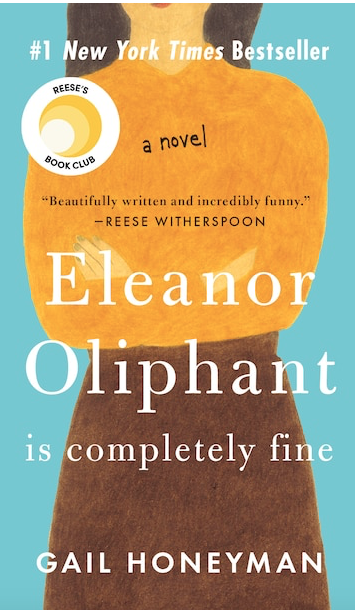words: Raffaella De Lia
Illustration: Victoria Tsaleva
Eleanor Oliphant is thirty, odd and has a scar on her face. She has a low-key job, no friends, no life. She exists, plainly. She works Monday to Friday and, on the weekend, she drinks herself into a painless stupor with vodka. She has a passion for crosswords and propriety of language. Her remarks are straightforward as arrows.

The book depicting her life is surprisingly intriguing. Surprisingly, because there are only a few dialogues and the narrative itself is mainly a monologue, Eleanor’s. Still, I could not put the book down.
I was caught into Eleanor’s life, curious about how it would end up and where it would lead. Eleanor herself gets reluctantly caught into her own life when things start to happen, when the ‘drama’ occurs and, with it, change, which pushes her forward despite her self-built seemingly emotionless existence.
Little by little, the reader discovers Eleanor’s past, which trickles into the events like an unwanted leak, surfacing gradually and sometimes chillingly. In the meanwhile, Eleanor, despite her best efforts, starts experiencing the warmth of friendship and the awkwardness of social gatherings. A few laughs arise watching her attempts to figure out what to wear or how to dance. Unexpected tenderness arises when she feels a rush of warmth after an elderly man affectionately holds her hands in his own or when a young colleague pays for her lunch.
And then there’s Eleanor’s mother. The anti-mother par excellence. Mean and mind-controlling, Eleanor’s mother is a presence that Eleanor endures like the scar of her face and on her heart. Until the time when Eleanor starts to change, although very reluctantly. It’s hard to look at one’s past pain objectively, much easier to bury it pretending it did not exist. Understandably, Eleanor doesn’t want to look at her past, but events force her to do so. It all starts with a juvenile crush she has on a man she’s seen only from far. That crush and the subsequent painful realization of its futility ultimately free her. In the end, she’s able to put a closure also to the relationship with her mother. An unexpected closure.
As the book ends, Eleanor Oliphant is still thirty and she’s still has a scar on her face. She’s an extraordinary human being who survived a very hard childhood and is starting to live. She has a few people in her life who appreciate her. She’s softened up when accepting her pain, maturely realizing that “[t]ime only blunts the pain of loss. It doesn’t erase it”.
Spoiler alert: Eleanor Oliphant is completely fine is a beautiful book and it is beautifully written.





























